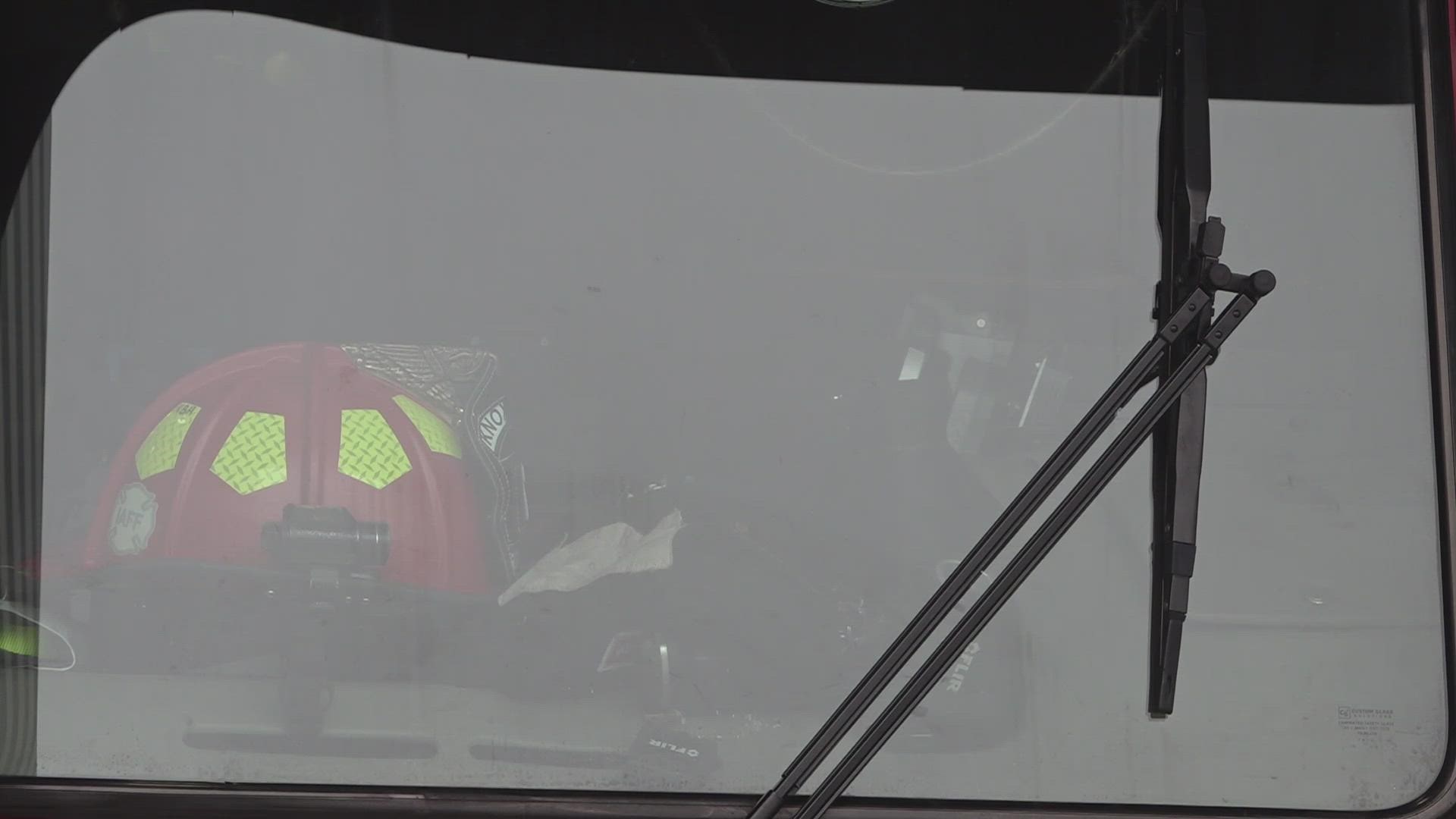NASHVILLE, Tenn. — A bill introduced in the Tennessee legislature on Monday would enact the "James 'Dustin' Samples Act," extending worker's compensation benefits to paid firefighters who are diagnosed with post-traumatic stress disorder.
The bill, SB 0856, would only extend benefits to full-time or regular firefighters who work for fire departments of municipalities, counties or other political subdivisions.
It would require the state to create a grant program to help fund the expanded Worker's Compensation Law. Fire departments that develop training courses for mental health awareness would be eligible for the grant program.
Chris Hinkle with the Knoxville Association of Firefighters is an advocate for the bill. He is also on the PTSD board for the Tennessee Firefighters Association.
"When it comes to PTSD, we're learning more and more," Hinkle said. "This just helps firefighters in the state of Tennessee be able to get the resources they need and the help they need if they're diagnosed with PTSD."
Firefighters would also only be eligible for benefits to treat PTSD if they faced trauma as part of the job. For example, they would be eligible if they witnessed the death or injury of a minor, or if a minor dies at a hospital or while en route to a hospital.
"It might not be just a specific call. There might be calls over the years, and that stuff just builds up. And then finally, one thing triggers it," Hinkle said.
Firefighters could also file for worker's compensation if they witness an "individual whose death involved a serious bodily injury of a nature that shocks the conscience," or if they see a survivor who had a similarly egregious injury.
Firefighters who respond to an event where a responder, co-worker of a responder, or family member was involved would also be eligible.
They would be eligible for benefits if they are still employed when they're diagnosed with PTSD, or within a year of leaving the department.
However, this bill would not extend to every firefighter in Tennessee. In fact, it may only affect about 3 out of 10 firefighters. Nearly 70% of fire service members are volunteers, meaning they are not employed by the state.
These folks are not paid to serve the community; however, Darryl Kerley, with the Seymour Volunteer Fire department said they do the same amount of work.
"We still do all the training, have all the qualifications and certifications, and respond to the same kind of calls as any paid firefighter in the state of Tennessee," Kerley said.
Kerley said many volunteer firefighters may respond to more calls, and be exposed to more traumatic events.
"The volunteers will see more horrific calls than many of the paid firefighters because they respond to all of the bad calls in the community whereas a municipal firefighter will only respond if they're on shift that day," Kerley said.
Kerley has been serving as a firefighter for over 40 years. He worked with Rural Metro and Oak Ridge before joining the volunteer department in Seymour full-time. However, that long career could have been cut much, much shorter.
A traumatic event in 2009 almost caused Kerley to leave the fire service industry.
"One of the calls that I had dreams about all the time was a two-year-old that drowned in a pool. Her mother knew me and was screaming my name. The child turned out to be my daughter's best friend at daycare," Kerley said.
The event was the catalyst for his PTSD.
"I started dreaming really, really bad things," Kerley said. " I didn't know what was going on at the time until I went in for my annual physical. And my physician realized that I have PTSD."
Kerley said it's common in the field. He said more firefighters die by suicide than in the line of duty. Part of the reason is the scenes they are exposed to.
"We attend to people who have passed away at home, and may have not been found for a week or two," Kerley said. "We remove dead bodies from burning buildings ... they're seeing it, they're smelling it, they're touching these people. And those things, those things stick with you."
That's why Kerley wants to see this legislation extend to the volunteer departments.
Kerley said Seymour, along with other volunteer departments, uses volunteer firefighter insurance for workers' compensation. The national agency will not consider adding PTSD to the coverage until the state takes the first step to do so for municipal firefighters, Kerley said.
"If the state doesn't cover PTSD, Volunteer Firemen's Insurance doesn't cover PTSD," Kerleys said.
However, the proposed legislation gives him hope.
"We are super excited that they're going to hear this again, and possibly pass it. And then maybe one day be extended to volunteers," Kerley said.
In the meantime, Kerley is taking it upon himself to educate firefighters in East Tennessee about the prevalence of PTSD. Kerley said the course has helped identify 14 other men and women who have symptoms of PTSD.
"It truly is an injury of the brain. And just like fixing a broken arm, you can fix it. If you get the correct counseling," Kerley.
You can read more about the bill here.

